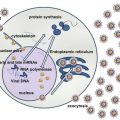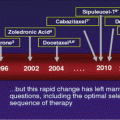© Springer International Publishing Switzerland 2015
Jean-Pierre Droz, Bernard Carme, Pierre Couppié, Mathieu Nacher and Catherine Thiéblemont (eds.)Tropical Hemato-Oncology10.1007/978-3-319-18257-5_8Transcultural Mediation in the Management of Cancer Patients in the Tropical Area
(1)
Medicine and Adolescent Psychopathology Department, Centre Babel, Maison de Solenn, Groupe Hospitalier Cochin, Paris, France
(2)
Research and Teaching Department, Centre Minkowska, Paris, France
Keywords
CancerExplanatory modelsMedical anthropologyTranscultural mediationTropical areas1 Introduction
Considering the fact that over 40 % of patients feel they were left out of treatment-related decisions,1 the French Cancer Plan for 2014–2017 aims at allowing patients to become actors of their own treatment.2
This change results from the epidemiological transition and the growing frequency of chronic diseases. In that context, there is growing pressure so that individuals may play a role in the management of their disease, bring their contribution to treatment, and share responsibility. This new paradigm was also influenced by new theoretical trends supporting vulnerable individuals’ capacity to participate and play a role, such as the empowerment theory [31].
While in the context of infectious diseases patients tend to remain passive, in the case of chronic diseases, they are bound to take on a more active role. This change has impacted the traditionally paternalistic patient-doctor relationship in favor of a more equal partnership.
Obviously, allowing patients to take on a more active role could not be limited to a personalized treatment program and the provision of information resources relating to his/her pathology and associated treatment.3
Rather it implies that, together with the treatment plan, the patient is able to grasp doctors’ understanding of his/her disease. In reverse, medical professionals should be able to access the patient’s representations of his/her disease and the ways it transformed his/her life. This mutual understanding rests upon the articulation between lay knowledge and expert knowledge, which is at the basis of transcultural care [16].
How can cross-cultural mediation promote this articulation?
How could it apply to the treatment of cancer in tropical regions?
How to implement it using local human resources?
Before answering these questions, it is necessary to outline the bases of medical anthropology and its contributions to understanding the illness experience. We then discuss the Centre Babel’s fifteen-year long experience implementing cross-cultural mediation in hospital settings.
2 Disease from an Anthropological Perspective
Anthropologists have shown that the illness experience is above all a social and a cultural event [1]. Disease is a shared social construction between society, the ill individuals, and healthcare professionals. In that respect, expert and lay representations of the disease and of therapeutic responses both confront and inform one another.
In the case of life-threatening diseases, two discourses are produced that often never dialogue with one another. One is the professional physician’s discourse, shaped by a technical knowledge of the body, and elaborated from the patient’s symptoms. Its goals are to establish a diagnosis and to propose a treatment. It is based on scientific evidence. Then there is the patient’s discourse, shaped by existential queries, and seeking to provide meaning to a life-threatening situation. Why me? Why now? This quest for meaning in the face of a serious illness is shared by all universally. It goes beyond the search for causes, which the physician focuses on. It is a quest which narrative is based both on individual and collective experiences and which is informed by shared representations of disease and misfortune, varying from one community to another, as medical anthropology studies have shown [1].
This narrative may lead patients to seek their own therapeutic responses, such as the so-called alternative therapies. Several studies have pointed to the frequency of resort to such therapies [38].
Diseases are thus not merely defined by medicine: They are multidimensional, as they are the expression of different points of view. In that perspective, cultures do not merely provide disease representations. They are essential to their construction as a human reality.
3 The Cultural Representations of Cancer and Their Impact on Communication and Care
Today, while the scientific and therapeutic achievements in the field of oncology allow us to perceive treatment as efficient and as offering hope for recovery, cancer remains symbolically associated with death, and cancer patients – together with their close kin – have to face their own finitude [5]. This ordeal triggers among individuals – cancer patients but also relatives and healthcare professionals – the production of myths and symbols to help make sense of the disease [43]. Such representations must be considered as “acts of communication” [39], underlying how much the illness experience is shaped by culture and its context, the hospital included [41, 47].
Cancer is a significant focus for anthropological analysis because of its symbolic and social meanings across global contexts [34]. For several decades, anthropologists have explored such issues as representations and experiences of cancer and the display and production of authoritative knowledge about cancer treatment and healthcare access. This literature focuses predominantly on cancer patients and biomedical treatment in Europe and North America [11, 13, 19, 24, 37]. A smaller body of research explores patient narratives and meanings associated with cancer in other regions, in such countries as Mexico [23], Botswana [32], and South Africa [48]. These anthropological studies explore a range of themes, including the stigma that cancer patients commonly face, inequalities of care, and the significance of support groups for survivorship.
A substantial literature focuses on cancer as metaphor [14, 19, 22, 43]. McMullin and Weiner [34] observe that “cancer” is a global word – “one that can be a metaphor for lack of control and degeneration” [13, 33]. Despite these studies on discourses surrounding cancer in the USA and Europe, we know little about how non-western populations conceptualize the term “cancer” and whether they categorize cancer as having particular consequences for one’s identity or social relations [21].
In her book entitled “Femmes et cancer” (or Women and Cancer [20]), Hélène Hamon-Valanchon identifies the “cancer trajectory” of women suffering from a reproductive cancer as an initiation ritual involving different stages and implying deep identity transformations. In the case of reproductive cancers, anthropologists have indeed shown how gender norms come to be challenged in the course of the disease [12, 48]. By drawing the relation between the disease and the social identity of the individual, anthropologists show the weight of social representations [44] and underline the need for information support so as to develop appropriate coping strategies. In their study on gynecological cancers among women in Australia, Wray et al. [48] conclude that the main obstacle to communication about cancer comes from the absence of a vernacular discourse devoid of sexual connotations, which prevent women from being able to share their experience with others. For example, stigma may derive from “external” social representations linked to reproductive cancers as resulting from bad hygiene and promiscuity [9, 49].
Once a diagnosis is established, although cancer treatment is accessible through the public hospital system, the complexities of interactions and communications involving clinicians, patients, and their families may complicate an already uncertain illness trajectory. A hospital-based ethnography [29] suggests that contested biomedical and nonspecialist representations of cancer shape strategies of immigrants and family members in response to a cancer diagnosis. In that respect, in the context of immigration and cultural diversity, interpreters and cultural mediators have become indispensable figures for communication with public health institutions [17]. Little research has focused on how interpreters and cultural mediators actually translate complex diagnoses and communicate negative prognoses to patients and/or families. The very question of vocabulary requires interrogation of, for example, what terms are used for “cancer” or “tumors,” chemotherapy, or radiation. Preliminary research [29] suggests that interpreters may deviate from direct translations of biomedical practitioners, to conform to cultural conventions concerning discussions of illness and death. Interpreters tasked with conveying terminal diagnoses thus play a central role in reframing such messages with reference to potential returns to the “home country,” for example. They thus have a central role in negotiating reasons for and the terms of that return.
Altogether, anthropological studies on cancer – its cross-cultural meaning and experience – underline how pivotal the communication between healthcare professional and patients is and demonstrate its clinical impact in the context of oncology [36]. The confrontation between lay and expert explanatory models on the disease – each one relying on a different set of myths and symbols to relate to the body and the functioning of organs – is a challenge for clear communication. It is all the more complex in a multicultural setting, and this complexity increases the likelihood of miscommunication [15, 28]. Recent public health efforts at better informing and communicating with patients remain out-of-reach for foreign-speaking, culturally diverse patients. A study on communication campaigns for breast and cervical cancer showed that they are “little adapted to cultural representations of the disease and to screening access for women living in poor social conditions” [10].
Despite the policies sustaining “healthcare democracy” and defending patients’ rights to access information, the quality of communication between patients and healthcare professionals remains problematic [4, 18]. While the dynamics of the clinical encounter have drastically evolved around the treatment of chronic diseases, the power of the doctor in selecting the information and holding the truth remains relatively unchanged [18].
4 Cultural Mediation: A Tool for Improving Healthcare Communication and Clinical Outcomes
For psychiatrist and anthropologist Arthur Kleinman [25, 26], patients and doctors each bring in a specific model that establishes the meaning and reality of the disease. As a result, he portrays the healthcare relationship as a confrontation of two explanatory models of the disease. On the basis of this assertion, we may consider that communication problems most likely arise from situations in which the negotiation between healthcare professionals’ and patients’ explanatory models of the disease failed.
Stay updated, free articles. Join our Telegram channel

Full access? Get Clinical Tree





